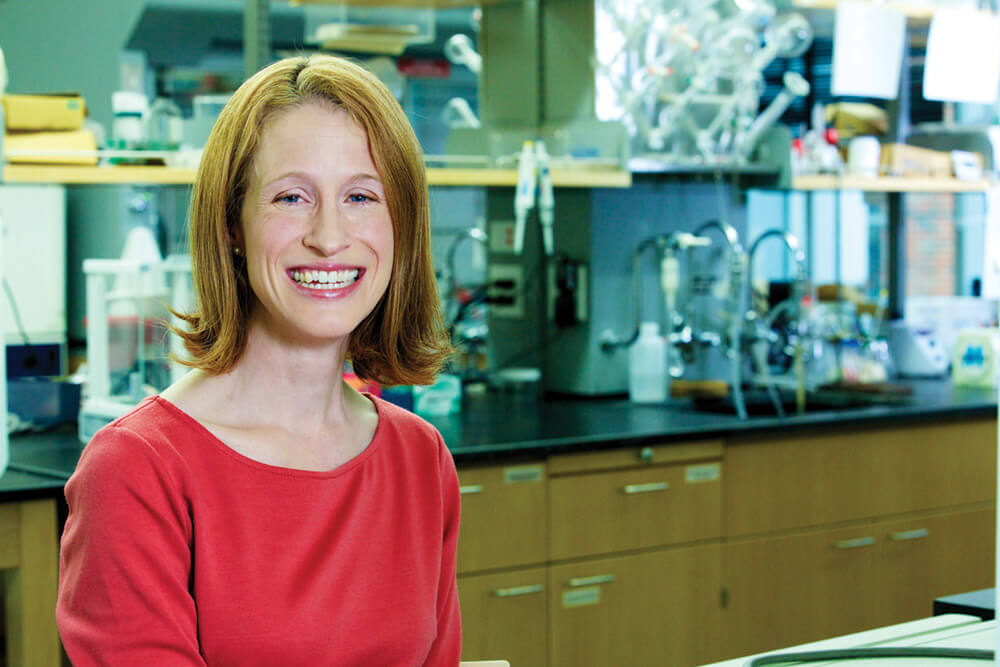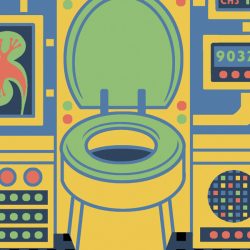One Diaper at a Time

Researcher Katie Brenner is pursuing what could be an easier and faster method for detecting infection and illness in premature babies: analyzing the contents of their diapers. Photo: L’oréal USA for Women in Science Program.
An unexpected process may lead to an earlier diagnosis for sick babies.
Katie Brenner woke up in her hospital room feeling nothing short of desperation. She remembered giving birth to a tiny daughter, but the doctors and nurses had whisked the infant away for care hours earlier. She hadn’t seen little Ruthie since.
“I want to meet my daughter,” the normally polite Brenner demanded of the hospital staff.
Today her little girl is a healthy six-year-old, but Brenner knows the story ends differently for too many families. Babies born prematurely are more susceptible to infection and illness than those born full term. But even before their illness is obvious — before symptoms such as fever or vomiting appear — the preemies might be past saving. “They are so fragile that by the time they appear sick, their condition can deteriorate quickly,” says Brenner, a postdoctoral researcher in the lab of Doug Weibel, a UW biochemistry professor.
Diagnosing such tiny infants can also be risky: a blood test may be all but impossible, as drawing as little as one-tenth of a teaspoon of blood from a premature baby may necessitate a transfusion. But something all humans do — including the tiniest — is urinate.
“We want to know if chemicals in the urine of preterm babies can tell us if they’re getting sick,” Brenner says. “If we can tell early on, we can get them help.”
Her study is the first to fully characterize urine from both healthy and sick preemies at every gestational age and birth weight. But to identify what is normal, Brenner has to determine what is not. She collects and analyzes urine-soaked diapers from premature babies in collaboration with De-Ann Pillers, head of the neonatal intensive care unit at Meriter Hospital and a UW professor of pediatrics, and Greg Barrett-Wilt, director of mass spectrometry at the UW Biotechnology Center. The diapers are first frozen, and then Brenner extracts the urine from them. (She laughs when she mentions she uses a blender to do so.)
It costs $200 to run just one of the urine tests, which can identify everything from the byproducts of food metabolism to drugs and bacterial fingerprints. Brenner’s work had been largely unfunded, as she initially had to collect enough evidence to show that her approach worked. She can now run even more tests with $60,000 in new funding from L’Oreal USA and the American Association for the Advancement of Science, which last fall selected her as one of five female scientists to receive the For Women in Science Fellowship.
Brenner plans to set aside some of the money to cover the cost of continuing education for the nurses who help her process the samples, allowing them to be “more engaged in the research process.”
Published in the Spring 2015 issue



Comments
No comments posted yet.